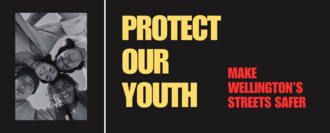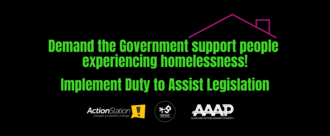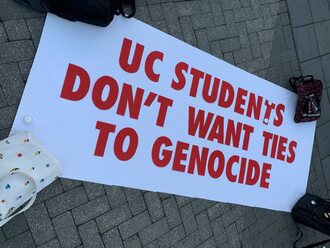-
Petition: Protect Public Safety and Psychology in New Zealand1. Risk to Public Safety: Psychology is a highly skilled profession requiring extensive postgraduate education, clinical training, and supervised practice. A one-year training programme following an undergraduate degree does not equip individuals with the necessary clinical competence to assess and treat individuals with mental health conditions safely and in accordance with evidence-based treatment recommendations. • Undergraduate psychology degrees in New Zealand are primarily research- and theory-focused, without substantial interpersonal or clinical skills training. • Insufficient training may lead to mismanagement of people with serious conditions such as suicide risk, psychosis, eating disorders, and personality disorders. • Associate psychologists may lack the ability to engage in essential therapeutic skills, such as validation, open-ended questioning, setting boundaries, and recognising when a case is beyond their competence. • Although there is some talk of associate psychologists seeing less complex people, it is extremely difficult to assess complexity at face value and there are indications that people in the proposed role will work across the range of complexity people face. 2. Lack of Appropriate Supervision: There is no clear reassurance that associate psychologists will be supervised by registered psychologists, despite the protected title of "psychologist." • Many psychologists in New Zealand are already stretched thin with high caseloads and complex cases, making adequate supervision difficult to guarantee. • There is no commitment that associate psychologists will work in teams with psychologists, further diminishing the structured, evidence-based, and ethically sound care that characterises our profession. • There is significant risk to the associate psychologists themselves when they work in mental health without extremely high levels of support and training. They can be taken advantage of, including financially as they may be seen as “cheaper” to hire. • If supervision is delegated to other disciplines, this raises serious ethical and professional concerns about the appropriateness and oversight of psychological interventions delivered by under qualified personnel 3. Erosion of Professional Standards and Public Trust: The introduction of associate psychologists risks confusing the public about the expertise and qualifications of those providing mental health care. • Without stringent oversight, the reputation of the psychology profession may be compromised by individuals practising beyond their competencies. • Members of the public seeking psychological services may not fully understand the difference between a psychologist and an associate psychologist, potentially receiving suboptimal care. • The title “Associate Psychologist” risks misleading the public and diminishing the professional standing of fully qualified psychologists. If the intention is to create a support role within mental health services, alternative titles such as Mental Health Support Worker, Wellbeing Practitioner, or Therapy Assistant could be used. These titles would more accurately reflect the level of training and scope of practice, without creating confusion or undermining the qualifications required to practise as a psychologist. 4. Threat to Psychology Workforce Sustainability: There has been no commitment from Health NZ that associate psychologists will not be used to replace clinical psychologists or fill vacant psychologist FTEs in the public sector. This raises concerns about cost-cutting measures that devalue the profession and create a long-term workforce crisis. • Psychologists provide evidence-based treatments that are proven to be cost-effective in the long term, reducing the burden on the healthcare system by preventing relapse, hospitalisation, and chronic mental health issues. • In contrast, associate psychologists with limited training may not have the expertise to deliver these interventions effectively, potentially leading to poorer outcomes, increased service demand, and higher overall costs. • Practising psychologists play a critical role in training and supervising the next generation of psychologists, ensuring a sustainable and competent workforce. Weakening our profession by introducing underqualified roles could undermine this vital function. • Australia recently abandoned a similar proposal following strong opposition from professional bodies, citing concerns about patient safety and the devaluation of the psychology profession[7]. New Zealand must learn from this and reconsider the implementation of a role that could have long-lasting negative consequences for mental health care in this country. The UK has two distinct roles relevant to this discussion: “Assistant Psychologist" and "Clinical Associate in Psychology" (CAPs). The role of “assistant psychologist” is not a separate scope of practice but rather a transitional role intended to provide work experience before higher levels of training. The role was never intended to provide direct, unsupervised clinical care or to serve as a substitute for registered psychologists. New Zealand risks misapplying this concept in a way that compromises the quality and safety of mental health care. Additionally, the UK requires assistant psychologists to receive at least 90 minutes of supervision per week, ensuring they do not work beyond their competencies. Their role is explicitly a stepping stone to further professional training rather than an alternative workforce solution. Clinical Associates in Psychology (CAPs) in the UK require an honours degree, an 18-month applied Master's training programme, restricted scope of practice, and intensive supervision. Notably, they do not hold the title of "psychologist." In contrast, the New Zealand proposal suggests a lower entry requirement (bachelor's degree), shorter training (12 months), broader scope, and the protected title of "psychologist." The risk of misapplying this model in New Zealand is significant, potentially compromising quality and safety in mental health care. We envision an Aotearoa that is safe and welcoming for vulnerable people, where people who need support can feel safe and contained by experienced psychologists. Unfortunately, the Government’s proposal falls significantly short of reaching that goal. By signing our petition, you are adding to a chorus of voices that tells the Government that we can do better, for all of our benefits!1,899 of 2,000 SignaturesCreated by Kumari Valentine
-
EXTEND THE PUBLIC COMMENT PERIOD FOR THE GENE TECHNOLOGY BILLThis petition does not argue “for” or “against” genetic modification, mRNA medicine or the Gene Technology Bill itself. Our concern is that everyone—farmers, families, scientists, and everyday citizens—deserves adequate time to assess how this Bill could: • Reshape our agriculture industry and threaten the 100% Pure reputation upon which our exports rely. • Allow more glyphosate in “Round-up ready” GM crops, negatively impacting our waterways, honey bees, and animal products. • Introduce “emergency” genetic therapies without thorough public scrutiny, raising questions about medical autonomy and national sovereignty. IF THIS BILL IS TRULY BENEFICIAL • It will still be beneficial after 90 days of additional fair public debate. • Rushing it through in just eight weeks disrespects our largest export sector and compromises democratic transparency. BY SIGNING THIS PETITION, YOU CALL ON THE GOVERNMENT TO: 1. Grant an immediate extension of the Gene Technology Bill’s deadline for at least 90 days. 2. Provide clear information so all New Zealanders can fully grasp the Bill’s ramifications. 3. Honour fair and transparent governance by giving us the time to engage, ask hard questions, make informed submissions and consult our peers. No matter where you stand on genetic modification, we all deserve the right to weigh the evidence and protect our environment, our economy, and our medical freedoms. Extend the Say—90 days is not too much to ask. YOU CAN CALL OR FORWARD THIS LETTER TO YOUR MP Your MP will want to know your position, no matter which party they serve. Call your MP’s office or copy and paste this petition and email it. You can your MP’s email address in the first link below. ADDITONAL INFORMATION & REFERENCES https://www.beehive.govt.nz/ministers https://bills.parliament.nz/v/6/22059628-b0cc-4931-5e07-08dd18a12bfb?Tab=history https://www.legislation.govt.nz/bill/government/2024/0110/7.0/LMS1009752.html4,451 of 5,000 SignaturesCreated by Harold Wren
-
Concerned Communities of Taranaki and Manawatu Against Seabed MiningThe South Taranaki Bight is home to a rich and diverse marine ecosystem supporting a wide range of species and habitats, including dolphins, penguins, and whales. The area is also a popular spot for fishing, with abundant and diverse fish species. The area’s underwater ecosystems include important feeding and breeding grounds for marine life, such as fish, seabirds, and marine mammals. It is vital that the health of this abundant ecosystem is protected to ensure the long term health of these habitats and the wellbeing of our communities. This is our coast. Trans-Tasman Resources Ltd (TTRL) is seeking to fast-track a proposal to mine iron sands from the seabed within the South Taranaki Bight. This proposal poses a direct threat to the marine life and habitats that depend on this delicate ecosystem. Seabed mining, which involves extracting minerals from the ocean floor, is an experimental and largely untested process. It presents significant risks to the seabed and surrounding environment, potentially causing far-reaching and irreversible damage to not only the project area, but extending many kilometres along the coast due to the spread of sediment plumes that could smother these ecosystems. TTRL wants to mine offshore in depths of up to 20-42 m deep. They plan to dig up 50 million tonnes or more of the seabed every year for 35 years, dumping 45 million tonnes back onto the ocean floor [1]. The dumping back of the waste is what differentiates seabed mining from sand mining, and it has a much bigger impact on the benthic and marine environment. This type of seabed mining has not been carried out anywhere else in the world. This isn’t TTRL's first attempt to get consent for seabed mining in the area. Over the past decade TTRL has had several unsuccessful attempts, spending millions of dollars on the hearing processes and using up an extraordinary amount of time and hundreds of thousands of dollars from the New Zealand public and existing industries, particularly fisheries, opposing their plans. So far their attempts to gain consent have been unsuccessful for risks to the ecosystems and inadequate information in their applications [2]. Now TTRL is making another attempt to secure consent for seabed mining off the Taranaki Coast through the new Fast Track process. The application area in 2024 is 66km2, but the company has permits for over ten times this area, for which a fast track consent could create a precedent. By applying to the Fast Track process TTRL are trying to side step the ongoing opposition to their plans. The Fast Track Bill proposes no feedback and submission process from the community, and only allows submissions from invited “relevant” local authorities. The local community has rallied against this proposal for years, dedicating significant time and resources to protect this precious environment. Local Iwi, along with residents, environmental organisations, boaties, fishers, surfers, and dairy farmers have been continually fighting to oppose this operation [3]. Offshore wind energy development is also threatened by seabed mining, and one developer has already pulled plans for this renewable energy source, due to TTR’s mining bid [4]. Wind farm developers are adamant the 2 projects are not compatible. The full economic and environmental impacts of this proposal have not been adequately assessed or presented. To fully understand the potential consequences of seabed mining, an independent regional cost-benefit analysis is needed. This analysis would provide a comprehensive evaluation of both the short-term and long-term effects on the local economy, environment, and community well-being. Because local councils are potentially the only bodies invited to provide feedback to the Fast Track expert panel or the Environmental Protection Authority (EPA), it is crucial that we, as residents directly impacted by this proposal, come together in opposition. By uniting our collective voice, we can give our local councils the mandate to ensure the health and wellbeing of our unique coast and communities are protected into the future by submitting strong opposition on our behalf. For more information on the social and environmental effects and the known economic costs and benefits please check out our website at: https://www.concernedcommunities.co.nz/ Bfm radio interview here: https://95bfm.com/bcast/get-action-concerned-communites-of-taranaki-and-manawatu-against-seabed-mining-w-whanganui-district References: 1. https://www.forestandbird.org.nz/campaigns/seabed-mining 2. https://www.courtsofnz.govt.nz/assets/cases/2021/2021-NZSC-127.pdf 3. https://www.theguardian.com/world/article/2024/aug/19/deep-sea-mining-new-zealand-south-taranaki-bight-ocean-seabed-patea-beach-ntwnfb 4. https://newsroom.co.nz/2024/10/24/offshore-wind-developer-pulls-out-of-nz-amid-seabed-mining-concerns/3,464 of 4,000 SignaturesCreated by Charlotte Melser
-
Protect our youth: Make Wellington’s streets safe!Aotearoa New Zealand should be a place where young people can experience life and make memories while being safe and protected. Wellington should be a city where our young people can have fun in a safe environment, without the fear of harm. Sadly, that’s not the case. A recent Salient survey revealed 75% of students have felt unsafe in a Wellington nightclub, and many highlighted concerning safety issues they'd faced travelling to and from the city at night and the lack of safe transport options. [2,3] “I can’t walk on Courtney without feeling like I need to constantly be watching my back” -Rachel (22) Young people and our communities know what the issues are and what solutions will work for us. That's why we want WCC to work with us - especially those that are often the target of harm such as our ethnic communities, queer communities, disabled communities and more. We are asking them to: • Commit to a project for young people's safety and wellbeing • Centre young people's leadership by co-creating it with us • Provide funding to enable young people's involvement and participation in the process • Funding pathways for intercultural cohesion through education and community building We truly believe that a wide-scale cross-community project would be a great first step for youth wellbeing and safety. We would start by engaging with communities on things that impact our safety - like transport, de-escalation skills, nightlife culture, safe spaces, accessibility, and cultural attitudes. In the meantime, there are already some solutions the WCC could action now, such as: • Increase funding for Take10 to include more safe spaces in and around Cuba street - Courtenay place area • Require all liquor licence holders to ensure their staff are trained in de-escalation training • Create teams of trained professionals that can go from venue to venue and make sure that people in need are cared for, including providing drug and alcohol harm reduction information and support • Train up more wardens from affected communities to be present in the inner city areas over the weekend nights, to help increase safety • Free and accessible transport • Free wi-fi and public accessible charging stations Why now? Mayor Tory Whanau has asked for a refreshed city safety plan now that the Pōneke Promise is coming to an end.[6] We want to make sure the new plan includes a project focussed on the wellbeing and safety of our young people, and reducing harm in the inner city. In late 2020, local communities raised concerns about the safety in central Wellington. At the start of 2021 the Wellington Alliance Against Sexual Violence - a coalition of youth-led organisations hosted a rally on Courtney place calling on WCC and its partners to prioritise sexual violence prevention. [3,4] WCC listened and created Pōneke Promise which widened its focus on making ‘central Wellington safe, vibrant and welcoming”[5] Now that a new plan is being made, we need to make sure WCC listens to our communities again and delivers what we as young people need - Safer streets! Join us and together we can create a better future for young people! Acknowledgment We would like to acknowledge Luke Smith. Who we lost too early and who brought us all together to fight for a better future for our young people. Because of Luke Smith we are demanding that the wellbeing and the safety of our young people are put as priority by the Wellington City Council. This petition we created in consultation with Luke Smith’s family. If you would like to support the family in bringing their son back home to South African for his funeral please click here for their givealittle. Interview with bFM: https://95bfm.com/bcast/get-action-protect-our-youth-make-wellington%E2%80%99s-streets-safe-w-rachel-jaboon-from-vasda References 1. https://www.salient.org.nz/post/safety-and-harassment-in-wellington-s-clubs 2. https://www.thepost.co.nz/nz-news/350352650/unwanted-groping-part-student-culture-city-bars 3. https://www.nzherald.co.nz/nz/there-is-no-excuse-hundreds-turn-out-to-protest-against-sexual-violence-in-wellington/7AEJB5VQY7BJ6VB67MEFU47BVU/ 4. https://wellington.govt.nz/-/media/community-support-and-resources/community-safety/files/sexual-violence-prevention/sexual-violence-prevention-roadmap.pdf 5. https://wellington.govt.nz/community-support-and-resources/safety-in-wellington/the-poneke-promise 6. https://www.thepost.co.nz/nz-news/350356298/inner-city-safety-plan-be-updated-after-students-report-feeling-unsafe725 of 800 SignaturesCreated by V.A.D.S.A
-
Demand the Government support people experiencing homelessness!Everyone should have access to decent, secure and permanently affordable housing. But right now, many people in our communities are experiencing homelessness – living on couches, in cars, in overcrowded houses and in unhealthy and unsafe conditions. For too long people in government have chosen not to allocate resources to public housing, while prioritising policies that encourage property speculators to buy up huge amounts of houses. As a result home ownership and access to decent, secure and affordable housing has become harder and harder for everyday people. This Government's recent decision to make access to emergency housing more difficult, is increasing the harm and risk of homelessness in our communities[1]. These policy changes were able to be implemented because there is currently no legislative responsibility on government agencies to support someone who is at-risk of homelessness. In the midst of a housing crisis, where there is already not enough decent and stable housing available within our communities, this Government has chosen to stall public housing builds across the country[2], cancel funding for youth housing services[3], and reduce access to emergency housing. These policies push the burden of responsibility for homelessness on individuals, rather than addressing the complex and systemic challenges that enable homelessness to occur. Together these policies will deepen the housing crisis Aotearoa is facing. Duty to Assist legislation would begin to address the systemic issues that prevent people from getting support when they need it. It would place the burden of responsibility back onto the system, and ensure that if you or I experience homelessness, or were at risk of homelessness, we would be provided with the support we need in our moment of crisis. In Wales, Duty to Assist legislation has been successful in the prevention of homelessness, through supporting people to remain in their housing and access the support services they need. The legislation also requires local authorities to provide emergency housing as a temporary measure while they fulfil their ‘duty to secure accommodation’ which means they must continue to find permanent and stable homes for people.[4] In Aotearoa, Duty to Assist legislation, alongside a commitment to increasing public housing, would get us on a path out of the housing crisis and towards a future where everyone has a place to call home. Supporting Organizations: AAAP Kick Back VOYCE – Whakarongo Mai ZEAL Just Speak Ara Taiohi System Change Aotearoa FASD-CAN References: [1] Government was warned emergency housing crackdown could increase homelessness. RNZ, 20 August 2024 https://www.rnz.co.nz/news/political/525607/government-was-warned-emergency-housing-crackdown-could-increase-homelessness [2] The impact of tougher emergency housing policies in two regions. 1News, 15 September 2024 https://www.1news.co.nz/2024/09/15/the-impact-of-tougher-emergency-housing-policies-in-two-regions/ [3] Social worker fears young Kiwis being abandoned by Government after transitional youth housing funds reallocated. Newshub, 05 June 2024 https://www.newshub.co.nz/home/politics/2024/06/social-worker-fears-young-kiwis-being-abandoned-by-government-after-transitional-youth-housing-funds-reallocated.html [4] Overview of the council’s duties to people experiencing homelessness in Wales. Shelter CYMRU, 7 March 2024 https://sheltercymru.org.uk/housing-advice/homelessness/help-from-the-council/new-homelessness-laws/2,819 of 3,000 SignaturesCreated by Kick Back
-
Christchurch City Council: Divest from GenocideIn November last year mayor Phil Mauger called for a ceasefire. We ask now that Christchurch city Council go further and follow the ruling of the International Court of Justice and divest itself from the genocidal regime. The Israeli bombardment and siege of the people of Palestine only continues with the support of other states. The highest court in the world has called on all of us to divest from the genocidal occupation. We ask our representatives to follow international law; Christchurch City Council is obligated to speak out against the genocide, and refuse to support the products of the Israeli apartheid regime.293 of 300 SignaturesCreated by SJP Canterbury
-
Inquiry into NZ intelligence used in international war crimes in GazaThe Government Communications Security Bureau (GCSB) and New Zealand Security Intelligence Service (NZSIS) are New Zealand’s spy agencies. While they are domestically-focused, they can produce intelligence of relevance to international conflicts. Associate Professor Treasa Dunworth, Dr Max Harris and Vinod Bal are asking the IGIS to open up an inquiry into the GCSB’s and NZSIS’ compliance with New Zealand law, and standards of propriety in relation to possible intelligence-sharing that has contributed to the commission of international crimes by Israel in Gaza. They believe there is a plausible case that the intelligence-sharing actions of the GCSB and NZSIS, in relation to what has occurred in Gaza, breach New Zealand law as well as standards of propriety. They are concerned that intelligence is being gathered by the GCSB and NZSIS which may be shared with Israel, either directly through authorised providing of intelligence or indirectly, through New Zealand’s position in the Five Eyes alliance. For example, New Zealand gives intelligence to the United States and the United States can then pass on that intelligence to Israel. If that is so, then they believe that this intelligence might be supporting the commission of international crimes in the current Gaza conflict. In their request, they begin by setting out the key legal provisions and how they ought to be interpreted. They consider past Inspector-General of Intelligence and Security reports and lessons to be drawn from them. They address the background to Israel’s actions in Gaza, credible reports about what is occurring, and possible New Zealand connections to those actions. Attention then turns to why the IGIS should exercise his discretion to open up and inquiry of this kind. The IGIS has an important role in ensuring that the New Zealand spy agencies act in a way that is compliant with New Zealand law and within the bounds of propriety. It is hoped that the IGIS will discharge this duty by opening up such a request. Read the request document1 of 100 SignaturesCreated by Associate Professor Treasa Dunworth, Dr Max Harris and Vinod Bal
-
Transparent Talks for Effective Gun LawsThis issue is undeniably important to New Zealand, especially in the aftermath of the Christchurch mosque shootings. It is a matter which implicates the lives of many people including school children, vulnerable communities such as the Muslim community and the LGBTQ+ community, as well as those struggling with their mental health. By making it harder to access semi-automatic weapons, we are able to increase the safety of everyone. It is clear from observing other countries, especially the United States, that unrestricted access to semi-automatic weapons leads to violence and division. While it may not seem likely that slight changes to gun laws in Aotearoa could have a large effect, one must remember two key points: firstly, that the Christchurch shooter obtained his weapon completely legally; and secondly, that the state of mental health support in Aotearoa is abysmal. Without treating this second point, something which the current government seems to have no real intention of doing, allowing even slightly looser access to semi-automatics is a massive safety risk. It provides a space for a dangerous weapon to leave the hands of an ordinary person and fall into the hands of somebody with ill intentions. Even if there are only non-regular incidents of gun violence following these law changes, the fate of the dead and injured will be in the government’s hands. While the proposed changes are on the surface somewhat innocent - aiming to rectify the difficulty of some recreational gun users in carrying out their hobby - it carries a confusing sense of urgency and secrecy for a process which by all accounts should be taken as slowly, carefully, and yes, even bureaucratically as possible. Consultation should expand to include the opinions of the entirety of Aotearoa, not just select groups of individuals. I think it is naive to expect that these changes will only affect a small number of people. It would be unsurprising if this was only the beginning of a series of changes to gun laws in Aotearoa; Nicole Mckee, the Minister in charge of the reform, is a former gun lobbyist who may be interested in emulating the gun culture in the United States. About me I am a year 13 student from Kapiti College who is concerned about gun safety in Aotearoa. I believe in maintaining a peaceful and safe society for everyone, regardless of their background or beliefs. As a young person in Aotearoa, I want to feel confident that the government is making decisions that prioritise the safety and well-being of all communities, rather than catering to a few special interest groups. Any changes to our gun laws must be done with full transparency and public consultation. I believe that by opening up the conversation, we can come to a solution that balances the needs of recreational gun users with the safety concerns of the wider population. I urge Minister Nicole Mckee and the coalition government to release the consultation document and ensure that any changes to our gun laws are made with the input of the public, the police, and those most affected by gun violence. Together, we can build a safer Aotearoa.177 of 200 SignaturesCreated by Amaya Colombick
-
Reinstate Creatives in Schools ProgrammeCreatives in Schools (CiS) was an arts programme that ran from 2019 to 2024. It funded schools and kura to partner with professional artists and creative practitioners to share specialist artistic knowledge and creative practice with ākonga and students. The programme enabled tamariki and rangatahi throughout Aotearoa to participate in high-quality, arts-rich experiences in their schools, in collaboration with professional artists. The program not only empowered students but also offered professional development for teachers and essential employment opportunities for hundreds of artists throughout New Zealand. It was truly a win-win for all involved. Young people need access to the arts more than ever in this fast changing world. CiS was a fantastic programme that worked on many levels. We call on the current government to reinstate the Creative in Schools Programme. "Playfulness and imagination aren't just essential for children's development, but for our world. Empathy is a basic, and that's why the imagination is so important. To be able to imagine someone other than yourself and what their life is, is so vitally important in our times now." – Professor Peter O’Connor.[2] References: [1] https://www.educationcounts.govt.nz/publications/schooling/creatives-in-schools-programme/creatives-in-schools-programme-evaluation-round-1 [2] https://www.rnz.co.nz/programmes/the-detail/story/2018948356/imagining-a-better-school-system-for-new-zealand Further reading: https://www.nzherald.co.nz/nz/education/kiwi-filmmaker-dame-gaylene-preston-says-government-daft-to-cut-creatives-in-schools-programme/XGZVLDOFVZAJDLUHOXTLJGWD6Y/#:~:text=The%20Creatives%20in%20Schools%20programme,to%20better%20support%20current%20priorities%E2%80%9D. https://thebigidea.nz/stories/a-national-disservice-the-need-to-reinstate-creatives-in-schools https://www.thepost.co.nz/nz-news/350316203/parties-jostle-over-axeing-creatives-schools https://www.thepost.co.nz/nz-news/350320475/creatives-schools-was-more-nice-have https://www.thepost.co.nz/culture/350391419/arts-and-music-are-essential-not-nice-haves?cx_testId=3&cx_testVariant=cx_1&cx_artPos=2&utm_source=localised_module#cxrecs_s https://www.rnz.co.nz/programmes/the-detail/story/2018948356/imagining-a-better-school-system-for-new-zealand3,400 of 4,000 SignaturesCreated by Dr Kerryn Palmer & Sarah Yates
-
Keep Our Māori Wards!Local decision-making is essential to daily life. The way our council is made up and who we elect to represent us, makes a difference. In 2021, local communities pushed for the then-Government to break down discriminatory barriers and make it easier for Māori wards to be established and strengthen local democracy. The changes included removing the requirement for councils to hold binding referendums to establish Māori wards if 5% of local voters petitioned the council. This had become an almost unsurmountable barrier for councils who wanted to set up Māori wards. Since the requirement for referendums for Māori wards was removed, Aotearoa has gone from having just three councils with Māori wards to 49 councils which either have them or will have them by 2025. That's a 1500% increase and covers 58% of local authorities. In other words, communities have shown clear support for Māori wards across the country. Yet last year the Coalition Government reversed this legislation with their Local Government (Electoral Legislation and Māori Wards and Māori Constituencies) Amendment Bill. This change forced local councils to either disestablish their Māori wards, or head to an expensive and distracting referendum in the 2025 local body elections. Two thirds of mayors and council chairs from across the country have said that this Bill is an overreach on local decision-making. The Waitangi Tribunal has found the changes the Government is making in this Bill are a direct breach of Te Tiriti o Waitangi. They also found that whole communities have benefited from Māori wards, and that referendums or polls are likely to have a divisive effect. After the vote, the overwhelming majority of councils voted to keep their Māori ward seats, which means that this year, 42 councils will be forced to run referendums at local body elections. No other ward has to be decided by referendum, and non-Māori hold the majority numbers in most regions which does not create a fair playing field for this decision. Now is the time to say yes to Māori wards. N.B. Māori wards are seats on councils, not hospital wards. References: Read ActionStation’s Protect Māori Wards report here Read the Waitangi Tribunal report here Read the Open Letter from Mayors and Council Chairs here8,408 of 9,000 SignaturesCreated by Team ActionStation
-
Save Oranga Tamariki’s Te Tiriti commitments (7AA)We all want the laws and practices guiding how we as a country look after children in care to have their best interests at heart. We know feeling connected to their culture and history is essential to children's wellbeing. Section 7AA is the only section of the Oranga Tamariki Act that ensures our tamariki Māori have their best interests protected through state care processes. It allows an ongoing partnership between the Crown and Māori to remedy shortfalls experienced by tamariki and their familial ties through state care processes. The repeal of this section will impact the way Oranga Tamariki interact with our children, straining their whakapapa ties with little to no regard as to the implications. Minister for Children Karen Chhour plans to introduce a bill to take 7AA out of the Oranga Tamariki Act to Parliament in mid-May.[1] Section 7AA is the primary legal mechanism for recognising the Crown's Te Tiriti o Waitangi duties in our child protection system, ensuring: 1) The policies and practices of Oranga Tamariki have the objective of reducing socio-economic and historic disparities by setting measurable standards and outcomes for Māori 2) That the polices, practices and services of Oranga Tamariki have regard to mana Tamati, whakapapa and whanaungatanga 3) Partnerships with hapu, iwi and Māori-led organisations are ongoing and strong to protect our Tamariki 4) Accountability is practised by reporting publicly and annually what the Ministry has done, and the impact of those actions with clear next steps. The recent report from the Waitangi Tribunal sheds light on the deeper implications of such a repeal, emphasising the profound impact it would have on the lives of our tamariki and their whānau.[2] Now is the time for action, for us to come together and defend the rights of our children. Indigenous voices and perspectives must be central to any changes made to legislation affecting their well-being. The absence of meaningful consultation with Māori about the repealing of these sections is deeply concerning and represents a failure to uphold the principles of partnership and participation enshrined in Te Tiriti o Waitangi.[3] Without adequate safeguards and holistic considerations, changes to the Oranga Tamariki Act could inadvertently harm vulnerable children and families, particularly those already disproportionately affected by systemic inequities and socio-economic challenges. By signing this petition, you are standing up for the rights of our tamariki and sending a clear message that their well-being and cultural identity must be protected at all costs. Together, let's ensure that Section 7AA remains intact. Join us in this crucial fight by signing the petition today and spreading the word to your friends, family, and community. Together, we can make a difference and safeguard the future of our children. References [1] https://www.parliament.nz/en/pb/hansard-debates/rhr/combined/HansDeb_20230726_20230726_44 [2] https://www.waitangitribunal.govt.nz/news/tribunal-releases-report-on-oranga-tamariki-section-7aa-urgent-inquiry/ [3]https://www.nzherald.co.nz/nz/government-warned-against-repealing-oranga-tamarikis-treaty-commitments/KXJFQ4PU35CSNIBMQE2O7Q6OJI/ https://www.teaonews.co.nz/2024/04/23/not-a-good-look-legal-expert-on-minister-karen-chhours-oranga-tamariki-act-change/ https://www.rnz.co.nz/news/political/514638/crown-lawyers-attempt-to-block-waitangi-tribunal-summons-to-minister-for-children https://www.nzherald.co.nz/kahu/state-abuse-survivor-urges-against-repealing-oranga-tamariki-treaty-commitments/TG4N2SOFBRDXXMXRYAVKDPCMMA/ https://waateanews.com/2024/04/23/tupua-urlich-dedicated-maori-advocate/1,432 of 2,000 Signatures
-
Protect Women: Make Stalking IllegalMaking stalking a crime will help to protect our basic human right to live safely and free of fear in Aotearoa NZ. We need to do this now to prevent more severe distress and physical harm from stalking, including murders committed by stalkers. • Stalking is terrifying and common, and it can be deadly. Making stalking a crime would enable coordinated, systematic responses so victims get prompt, consistent, and effective protection which is not currently provided [1]. • Stalking is illegal overseas, but not explicitly in NZ, making it very difficult and often impossible for victims/survivors to get the protection they need. • Prior to the election, now-Minister Paul Goldsmith criticised the previous government for dragging its feet in this area, but he now indicates criminalising stalking is not a priority. • Police methods to determine stalking risks are inadequate and not fit-for-purpose, as identified by the Independent Police Complaints Authority in 2024, after the death of Farzana Yaqubi on 19 December 2022 [2]. Farzana's stalking complaint was still “awaiting investigation” when she was murdered by her stalker almost 8 weeks after she first contacted Auckland police. If stalking had been explicitly illegal, police would likely have had the correct tools to keep Farzana safe immediately. Stalking is a pattern of unwanted repetitive and persistent intrusions into a person’s life. • Physically following someone is only one kind of stalking. Common repeated stalking actions include: digital stalking; showing up uninvited; driving past a home or workplace; confrontation; messaging repeatedly; posting on social media; delivering gifts; using spyware to get private information; making threats; contacting people close to the victim; and sabotaging the victim’s freedom and prospects. • To be considered stalking, these actions must be part of a pattern of repeated unwanted intrusions into someone’s life. • Stalking is common. In the USA, 1 in 6 women, and 1 in 17 men experience stalking in their lifetimes. NZ does not yet collect stalking data but harassment and threats, which are consistent with stalking, are two of the five most common crime experiences (2021 NZ Crime and Victims Survey). • Young women, recently separated women, and those experiencing intimate partner violence are most commonly affected by stalking. Wāhine Māori, disabled women, rainbow women and trans people, and migrant and refugee women are disproportionately impacted. • Those targeted for stalking include politicians, journalists, and celebrities, which can dissuade women from public roles or from speaking out. This silencing of women has a strong negative impact on both gender equity and our democracy. Stalking usually takes a heavy toll on victims’ emotional, mental, and physical well-being and is often far more dangerous than it looks from the outside. • It is usually designed to control the victim through intimidation which is why it is so terrifying. • Stalking can, and does, lead to physical violence, even death. • As one victim put it: “I always thought at the beginning that if I could just ride it out then he would stop. But that never happened and it got worse and worse. It was very, very scary. It was extremely isolating […]there was never a time that I could escape it, ever.”[3] NZ’s current laws: out-of-date • Various stalking-related behaviours are prohibited across a patchwork of fragmented, piecemeal, and poorly understood statutes, which fail to capture stalking's underlying harmful pattern. • The lack of a stalking law prevents coordinated responses and prevents victims of stalking from getting prompt, consistent, and effective protection. • Overseas, standard practice is to criminalise stalking, including in the US, Australia, England, Wales and the European Union. • We recognise every part of our justice system has a fundamentally racist track record: arresting, prosecuting, convicting, and incarcerating Māori at vastly higher rates than non-Māori. Over-incarceration of Māori continues to be used as a tool of on-going colonisation. We support Māori-led innovation through devolved resourcing and decision-making to address these issues, and we support sentencing that emphasises rehabilitation and keeps people safe. As well as criminalising stalking, the government needs to resource the prevention of stalking: • Police training to recognise stalking and its harms, and take action to stop stalkers immediately • Anti-stalking intervention programmes • Public awareness campaigns about stalking and its harms • Training for social and community workers re prevention and victim protection • Comprehensive data collection on stalking prevalence Women's safety needs higher prioritisation - politicians keep stringing us along. • In August 2020 Justice Minister Andrew Little agreed a review of the law was needed. • In 2021, the next Justice Minister Kris Faafoi committed to addressing the lack of legal redress for intimate partner stalking. However, nothing was done. • In 2023, we worked to educate the political parties that action on stalking is urgent. Prior to the election, the National Party publicly supported the inclusion of stalking as a crime within the Crimes Act 1961.[4] New Zealanders need the National-led Government to act now to prevent more innocent people from living in fear and being harmed or murdered. A note from the ActionStation team: https://bit.ly/3woVhAW References: [1] For more info on the policy background of this petition see: https://awc.org.nz/stalking/ [2] https://www.ipca.govt.nz/Site/publications-and-media/2024-media-releases/2024-apr-18-investigation-response-farzana-yaqubi-online-report-.aspx [3] https://womensrefuge.org.nz/intimate-partner-stalking/ [4] https://www.nzherald.co.nz/nz/election-2023-four-political-parties-pledge-to-strengthen-legal-protections-against-stalking/FQF3HDBPRBBFRLXQGJZODDRFVM/22,040 of 25,000 SignaturesCreated by Coalition for the Safety of Women and Children and AVA Anti-Violence Action





.png)

.jpg)

.jpg)

.jpg)